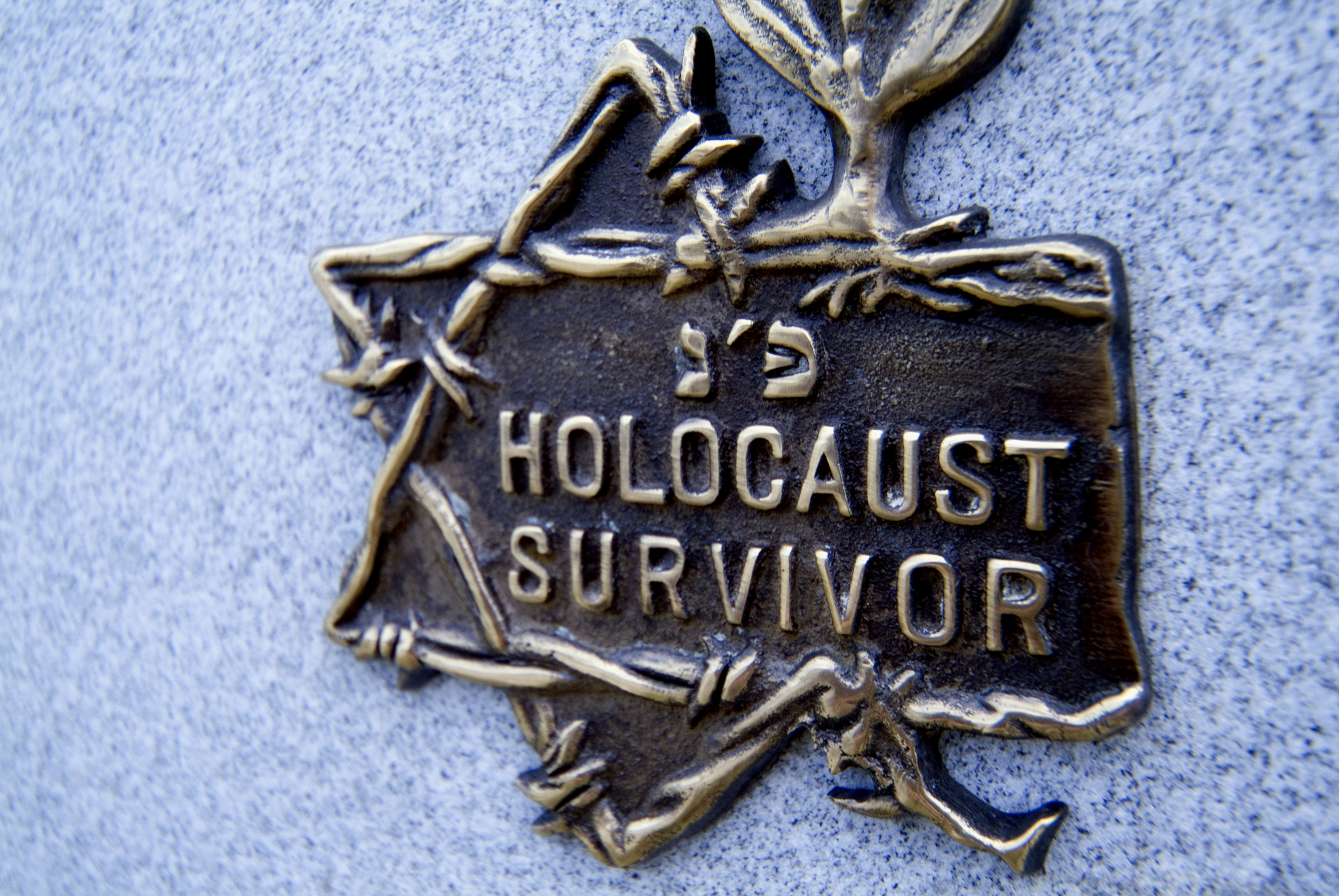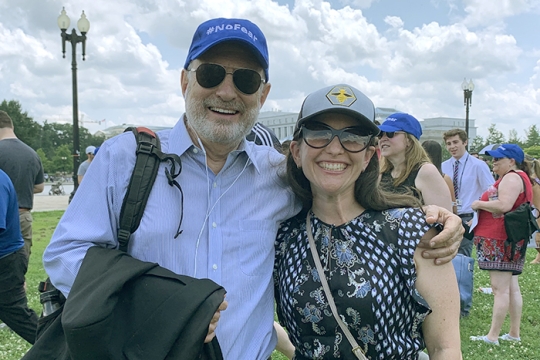Never Forget, Never Again: Why Holocaust Education is Critically Important Today

On my second Tuesday in D.C. I was sitting at my desk at the Jewish Federations of North America and facing what had already become my typical afternoon low-energy wall. My task for the afternoon was to contact organizations and ask for their support on the Never Again Education Act (H.R. 5460), which would use private donations to increase Holocaust education for middle- and high-schoolers by connecting teachers with much-needed funding and resources. I knew, technically speaking, that this was important work. I am a granddaughter of a Holocaust survivor and, like many Reform Jews in America, grew up hearing over and over the phrases ‘never again’ and ‘never forget.’ But because I spend so much of my time in Jewish spaces it’s all too easy for me to forget that the Holocaust is fading from American memory.
I was getting a little restless so I pulled the number one bad intern move and checked my phone. (Apologies to my supervisor!) I saw that I had received a Facebook message from a woman named Avalon Levey in a group called Witness to Genocide 2010-2011. This was a class that I had taken at my home synagogue, Mount Zion Temple in Saint Paul, MN, in the spring of eighth grade. The class was half teens and half Holocaust survivors, and in it we discussed what genocide looks like and how to recognize the early stages so we could be upstanders rather than bystanders. Avalon was writing to tell us that one of the survivors in our class, Charles Fodor, had passed away.
Charles was born in 1936 in Budapest, Hungary. To this day I have such a clear memory of him telling us his story: he was eight years old and he and his grandmother were looking for a protected house--an embassy--when they were told by three women wearing armbands with the symbol of the fascist Arrow Cross party to go into a building. Just then a man they didn’t know came out, led them away from the building, and said, “You don’t belong here. Get lost.” Charles and his grandmother left and later learned that all the people who went inside were shot into the Danube River that night.
A miraculous story--but as we say in my family, every story of Holocaust survival has a miraculous twist, because the typical story did not have a happy ending.
Though I hadn’t spoken to him in years, the news of Charles’ death affected me deeply. He was a regular usher at Friday night services and I had gotten used to seeing him there whenever I was home. I knew in the abstract that there are fewer and fewer living Holocaust survivors, but knowing that was different than knowing what someone went through so early in their life and then learning of their death. I got very scared all of a sudden, realizing in a very visceral way that my children will never hear firsthand a story of the Holocaust; they will only know what it is to be named after those my family lost to it.
Now especially unready to go back to emailing, I got on Twitter. (Another bad intern move. It was a tough day.) My feed was full of stories about the migrant detention center in McAllen, TX. I saw pictures of children who had been separated from their parents and were being kept in what were effectively cages with nothing but each other and thermal blankets for comfort. These images were, of course, incredibly disturbing. But what concerns me just as much is the apathy I see from the American public. The government cannot answer when or if children in McAllen will be reunited with their parents, but there are millions of Americans who see no problem with this because these children are not American and therefore seen as not our concern.
And that’s when it hit me in a way it never had before: this is why we do the work that we do. Because, as Jews, we were strangers in a strange land. We know what it is to have our suffering be overlooked by others because they have the luxury of being unaffected by it. We know how to identify hate and bigotry even in their most insidious forms. Because we have a voice and we must use that voice to make people care.
When it comes to family separation and the administration’s zero-tolerance policy, we cannot and will not be silent. It is crucial that we not be lulled into a sense of complacency by the reversal of the family separation policy. It is our duty to stand with those whose position we know all too well.
With a renewed sense of purpose, I finally got back to work and am proud to say that over 75 organizations signed on in support of the Never Again Education Act. We must not only fight against injustice but ensure that our nation’s children are equipped to recognize it in its early stages. I am proud to be part of this fight and cannot imagine myself anywhere else. When the next generation asks what you did during this crucial moment in American history, what will you tell them?
Sophie Elwood is a 2018 Machon Kaplan participant and an intern at the Jewish Federations of North America. She is a student at Wesleyan University in Middletown, CT. Sophie is originally from Saint Paul, MN, where she is a member of Mount Zion Temple. In high school, she was an active participant in NFTY Northern Region.
Machon Kaplan is an internship program for undergraduate students interested in Judaism and social justice. Based in Washington, D.C., it provides students with a meaningful social justice internship, the opportunity to engage in study related to their internships and and making change more broadly, as well as an open reflective community with whom to share their experience. Students learn, through study and action, the interrelationship of Judaism and American ideals, as well as how change happens. Learn more.
Related Posts

Urgency and Timelessness at the Capitol

